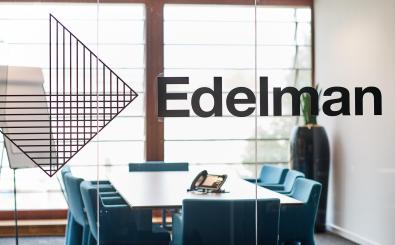The Tarnishing of Brand Germany
By Christiane Schulz, CEO Edelman Germany
“Made in Germany.” A label first enshrined in British law in 1877 and meant as an insult – to mark supposedly inferior products imported from Germany – has long since become a hallmark of German quality and engineering instead. To quote the famous ad slogan of German carmaker Audi, it now symbolizes “Vorsprung durch Technik” – a competitive advantage rooted in technology.
Not anymore. The Dark Halo effect of a string of industry scandals – from Dieselgate to the multiple problems of Deutsche Bank – has badly tarnished Brand Germany. To examine their true impact, we commissioned a special edition of the Edelman Trust Barometer.
The numbers make for stark reading. In the United States, only 38 percent of the public still trust German companies; a seven-point drop compared to a year ago. In France, 46 percent continue to trust German firms, down 10 points. Even where the data looks much better – in emerging economies like Brazil, India, Mexico and China, where trust levels are above 70 percent – we see the first clear signs that the power of Brand Germany is beginning to weaken.
For years, Germany ruled the roost in our annual Trust Barometer, jostling with Canada, Switzerland and the UK, among others, as the home of the most trusted global companies. Not anymore. The downward trend is affecting industries across the board, from financial services, chemicals and pharmaceuticals to automotive.
Edelman has tracked trust for nearly 20 years. We have seen how long it takes to build or rebuild trust, and how quickly it can be lost – for good. That makes our Trust Barometer for Brand Germany particularly uneasy reading, because as the data shows, these industry scandals are now harming trust in several fundamental values of German industry. Especially in developed economies, German companies are not seen as having the controls in place to uncover and prevent corruption. The ethics of German companies are called into question. Even the confidence in the quality of German products is beginning to decline. Potentially even worse, customers in developed markets do not view German companies as good global citizens or committed to local communities.
All this sits uneasily with a narrative widely accepted in Germany: Made in Germany continues to be an intense source of national pride, even more important than the country’s standing in the European Union or on the global diplomatic stage. Even among Germans, trust in their nation’s companies is weakening, which points to fundamental problems of corporate governance, behavior and communications.
Such declines in trust have an impact that goes deeper than hurt national pride. We know that today’s customers are belief-driven buyers. If they don’t trust a brand, they are less loyal to it. As our survey of Brand Germany shows, this is already under way. Across both developing and developed economies, between 29 and 54 percent of customers say that they buy fewer or actively boycott German products because of the scandals involving German companies.
These are clear warning signs for an economy that’s powered by the exporting prowess of its industry.
Rebuilding trust will require concerted action across all sectors of German industry. What’s needed are not marketing campaigns, but a communications strategy that is rooted in trust and based on credible action – from clear leadership on ethics to how companies treat their staff and train them for the skills of the future, to how open and transparent they are in their local communities.
This may require chief executives to take on a more prominent role as the explainer-in-chief; we all know that this does not come easy to German bosses. All companies, however, will definitely have to begin actively managing their own trust – by identifying the strengths and weaknesses of their own brand.
Only once German businesses get the trust basics right, will they be able to rebuild belief in Brand Germany. And if they fail to act, then “Made in Germany” could quickly become an insult once again.




